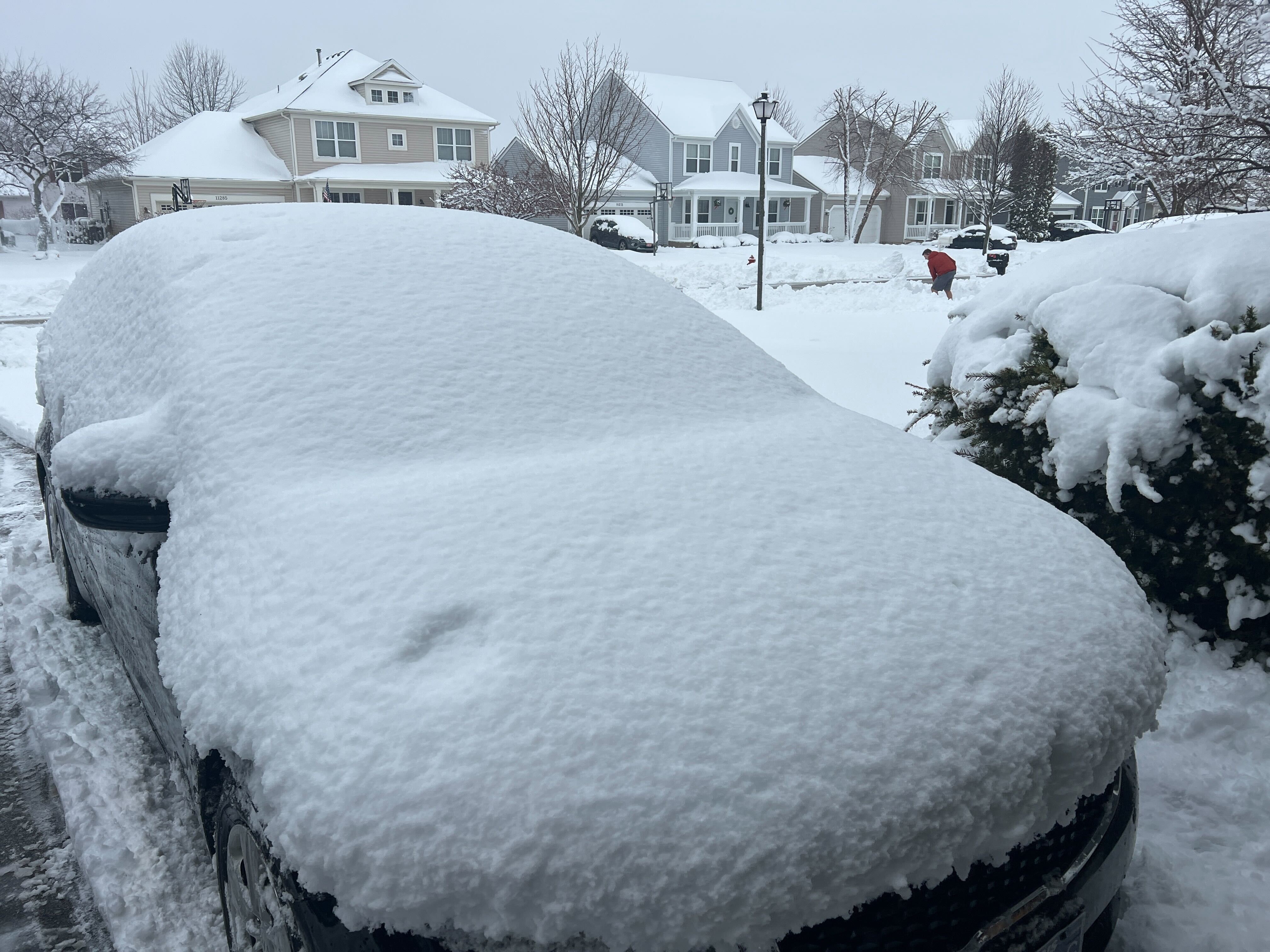Speaking to reporters at a news conference Wednesday morning, Gov. J.B. Pritzker took aim at Texas Gov. Greg Abbott for what he called a "cheap political stunt" of continually sending migrants to major U.S. cities, including Chicago, while at the same time urging both Congress and lawmakers in his own state to approve spending measures to address the ongoing crisis.
In the past year, more than 30,000 migrants have arrived in Chicago, according to the city’s latest figures. Shelter space is nearly at capacity. According to the city’s latest census data, nearly 600 people were awaiting placement in a shelter, with 300 stuck at the city’s designated "landing zone," a drop-off point for migrants entering the city.
The migrant crisis has caused ongoing pain points in the country’s third largest city – both financial and logistical.
Volunteers who were hoping to bring in a mobile shower unit for migrants to use at the landing zone were told Wednesday morning by city officials they wouldn’t be able to hook up to the water supply.
In a statement, a city spokeswoman said the volunteers had not coordinated their plans with the city.
NBC 5 Investigates found the city has spent at least $156 million over the past year on migrant operating costs, including giving $96 million to a Kansas-based company, Favorite Healthcare Staffing, which staffs the city’s migrant shelters.
NBC 5 Investigates was first to report last week that on Dec. 29, Mayor Brandon Johnson signed a new spending increase contract with Favorite Staffing worth $30 million, now bringing the total spending value of Favorite’s contract with the city to more $70.2 million.
Pritzker told reporters Wednesday he’d like state lawmakers to consider approving a supplemental spending measure that would "backfill" the $160 million he earmarked in November to help Chicago address the migrant crisis.
State lawmakers are expected to return to Springfield next week.
The governor said lawmakers wouldn’t need to do this immediately, but that: “We want to make sure we are filling all the buckets that we’ve drawn from to make sure we’re dealing with the crisis at hand.”
Feeling out of the loop? We'll catch you up on the Chicago news you need to know. Sign up for the weekly> Chicago Catch-Up newsletter.
The injection of money that Pritzker announced more than two months ago was initially meant to help support Chicago’s efforts to house migrants.
At the time , the governor’s plan included $30 million to help launch a migrant intake center to welcome new arrivals and help identify which people may not want to stay in Chicago.
Another $65 million was expected go to rental assistance and other services, and another $65 million was earmarked to help create a winterized tent community that could house up to 2,000 people for up to six months.
The state cancelled the City of Chicago’s plans to house up to 2,000 migrants at a once-vacant lot in Brighton Park after environmental concerns were raised and lab results found levels of mercury and other toxic metals in the soil.
The state also took responsibility for opening a new shelter, which opened Wednesday at an old CVS pharmacy in Little Village which could house up to 220 people.
While touting that “progress is being made,” the governor acknowledged that he was “concerned” that Congress may not act on a bill that would potentially provide much-needed federal aid to cities playing host to migrants.
“So I’m concerned,” he said.
When asked if that meant the City of Chicago and the state would be left footing the bill, he said: “Yes. And philanthropy. We’re doing the best we can with the resources we have.”
When asked what the state could do to address so-called “rogue buses” that have been popping up in Chicago suburbs and the city dropping off migrants without warning, Pritzker said lawmakers may be able to weigh options but there were no current mechanisms that allow the state to act. The governor also hinted – without sharing details – that there are efforts underway to deter more planes with migrants from arriving in Illinois.
“I don’t want to give away our strategies. We are trying to prevent those companies from leasing their planes to the state of Texas,” he said. “In general, you can’t tell a group of people or an aircraft that it can’t come somewhere. On the other hand I would say there are other things that would be a significant deterrent and they are already working.”




